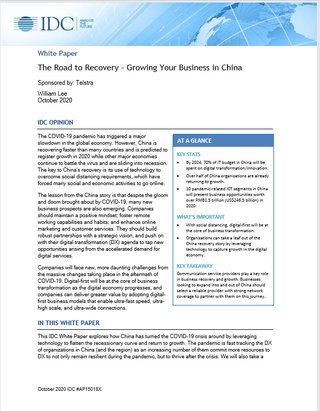Majority of Brits received no digital training during the pandemic
This is despite the fact that 89% agree that digital skills will be important to the UK’s long-term economic prosperity

A significant majority (83%) of Brits have revealed that they received no support to improve their tech skills over the last six months despite the increased digitisation observed during the ongoing pandemic, according to new findings from BCS, The Chartered Institute for IT.
This is despite a similar proportion (89%) of UK adults agreeing that digital skills would be important to the UK’s long-term economic prosperity.
This follows a study conducted by Microsoft and Goldsmiths, University of London, which found that 80% of leaders believe that investment in digital skills will be important to the UK’s economic recovery following COVID-19. A further 78% said that a large pool of digital talent will be essential to driving UK competitiveness.
However, according to BCS, most (62%) of the 2,000 surveyed adults indicated that they were not concerned that their level of tech training could affect their career prospects. Those who had received support said that they had been helped by employers (57%), family and friends (28%), and training providers or governmental initiatives (13%).
The findings from BCS further solidify the concerns surrounding the UK’s growing digital divide, which the Institute’s president, Rebecca George OBE, described as “a modern measure of inequality”.
“Over nine million people in the UK lack basic tech skills which are key to levelling up social inequality and to turbo-charging the workplace post-COVID,” she said.
“So to learn that the vast majority of people don’t recall an offer to improve their abilities in using basic software is concerning. We want to help government and industry ensure that every adult and child has the right level of digital education or training for them to succeed.
Get the ITPro. daily newsletter
Receive our latest news, industry updates, featured resources and more. Sign up today to receive our FREE report on AI cyber crime & security - newly updated for 2024.
“That means promoting opportunities to take a really broad range of digital qualifications - from the school curriculum to professional training in the workplace,” added George.
When it came to the most demanding software, BCS found that nearly a third (31%) of those surveyed are not confident with basic data management using a Microsoft Excel spreadsheet. This comes weeks after the news that a “technical issue” identified in the government’s flagship NHS Test and Trace contact-tracing scheme centred on serious limitations in the use of Excel to log positive COVID-19 cases.
Having only graduated from City University in 2019, Sabina has already demonstrated her abilities as a keen writer and effective journalist. Currently a content writer for Drapers, Sabina spent a number of years writing for ITPro, specialising in networking and telecommunications, as well as charting the efforts of technology companies to improve their inclusion and diversity strategies, a topic close to her heart.
Sabina has also held a number of editorial roles at Harper's Bazaar, Cube Collective, and HighClouds.






